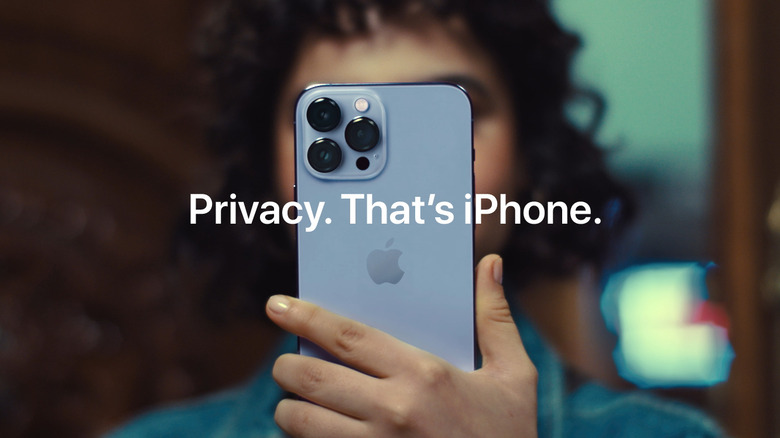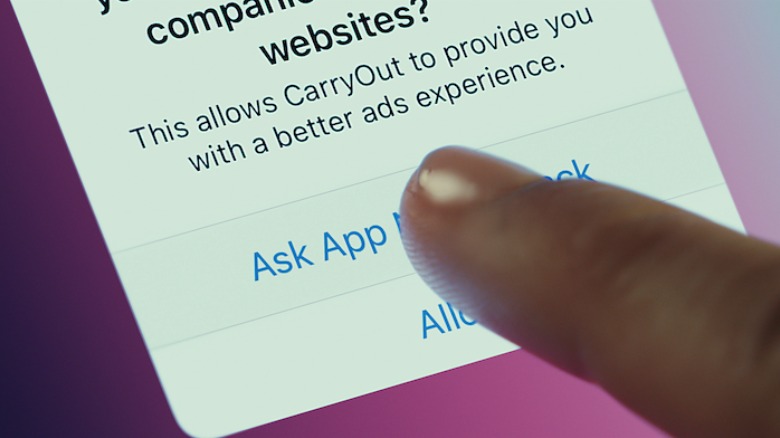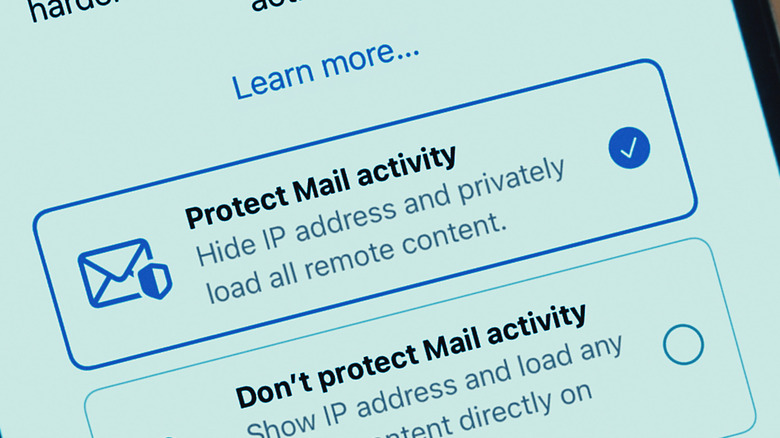Apple's New Privacy Commercial Puts Data Brokers On Notice
Apple is doubling down on its privacy push, with a new commercial highlighting just how much of our personal information is being sold among data brokers, and how iOS and macOS technologies aim to tame that. The new spot, which will be broadcast in 24 countries in summer 2022, takes a tongue-in-cheek look at a data auction, as well as highlights how different settings on iPhone can be used to stymie that collection.
It follows Apple's previous efforts to underscore quite how valuable things like browsing data, email and messaging activity, and shopping history are in the age of the internet economy. Its "A Day in the Life of Your Data" report, updated in April 2021, aimed to pull back the curtain on how "data is pieced together, shared, aggregated, and used in real-time auctions, fueling a $227 billion-a-year industry" about which many are still blissfully unaware.
That came as Apple was implementing App Tracking Transparency, forcing developers for iOS to request outright permission to track users' activity across other companies' apps and sites. While it didn't demand an actual change in behavior — companies like Facebook and Google were still allowed to track and use ad network providers that rely on aggregated user data — it made that process more obvious to iPhone and iPad owners themselves.
The new ad reveals just how we're now the product
Since then, we've seen a number of other options added, some of which this new commercial — called, simply, "Data Auction" — calls out. Some are active, like Intelligent Tracking Prevention in Safari, which when activated will use machine learning to figure out what in websites is functional and what is for tracking, and then block the latter. More recently, it has also gained the ability to hide your IP address, too.
That's something Mail Privacy Protection does as well, as well as blocking the so-called "invisible pixels" which can report back to data brokers whether or not you opened an email. Obscuring location in a more granular way is something Apple has been exploring for a while now: iOS 14, for example, introduced the ability to share approximate location with apps and sites. Rather than giving exact coordinates, it narrows your position down to a roughly 10 square mile zone; enough to get local recommendations and news, but nothing more specific.
Other additions have focused more on awareness. App Privacy Report, for example, shows which apps have tapped which hardware and software permissions on your iPhone and iPad, including a list of the domains that app might be contacting in the background. Safari Privacy Report does much the same thing, only for website trackers.
Data aggregation is a huge industry - and little-understood
It's unclear just how much privacy — or the promise of it — alone sells a product or service, and Apple's own restraint when it comes to data aggregation does somewhat obscure the impact of its software features. A little ironically, it doesn't actually collect telemetry on how many users are opting in or out to data sharing, the company says. The reality is that some users will always see the value from apps and services as outweighing the value of their personal information, and thus choose to make the decision to share that.
Still, it's also probably fair to say that the scale of the data broker industry is poorly understood, if its activities are known about at all. The profiles built up from aggregated information can be considerable: one popular data broker, Apple says, collects information on 700 million consumers around the world, with individual profiles containing as many as 5,000 different characteristics. If you've ever wondered why you're being followed by targeted ads quite so spookily accurate to your own recent interests, this is probably the root cause.
Apple's continued focus is unlikely to win it too many friends in the tech world. Its emphasis on privacy does, of course, come with a spotlight on iPhone features, along with strategic decisions like Apple Wallet and Apple Pay not tracking purchase history, and Messages being end-to-end encrypted. Although not calling out Facebook, Google, and Amazon directly, it's not hard to see the message being an attempt to contrast what you get as an iOS user, versus being a customer of other platforms. In the end, it'll come down to individuals deciding just what the limits of their privacy concerns actually are, and how much they're willing to trade in return for "free" access to the latest must-have apps and services.




